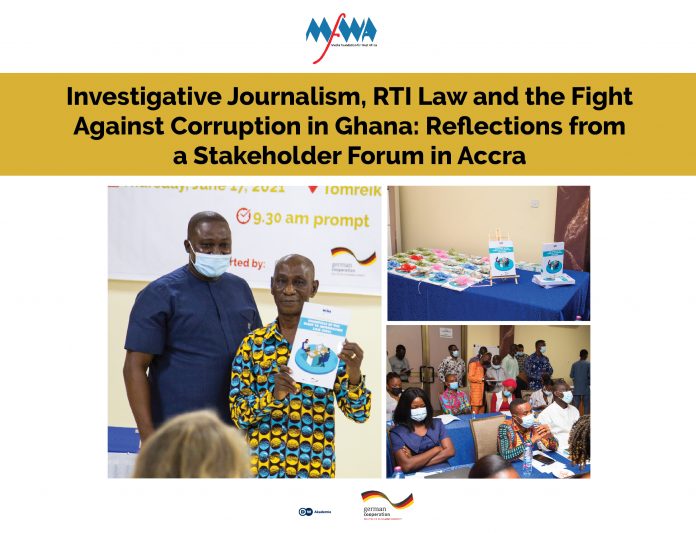In March 2019, Ghana finally passed the Right to Information Act (989) after two decades of unrelenting crusade. The RTI Act was assented to law by the President on May 21, 2019. Considered the ‘mother of all anti-corruption tools’ in Ghana, the RTI law was expected to be a key legal instrument that would facilitate citizens access to public information thereby engendering transparency and accountability in governance. Unfortunately, awareness and uptake of the law by citizens including journalists has been quite low since its passage.
On June 17, 2021, the Media Foundation for West Africa (MFWA) with support from the Deutche Welle Akademie convened a forum of journalists, lawyers, anti-corruption CSOs, journalists’ groups/associations and members of the RTI Commission on the theme Investigative Journalism, the RTI Law and the Fight Against Corruption in Ghana. The forum formed part of efforts to increase the knowledge on the law among journalists and how it can be utilised to help fight corruption in Ghana.
This publication presents key Reflections and Recommendations from the Stakeholder forum.
